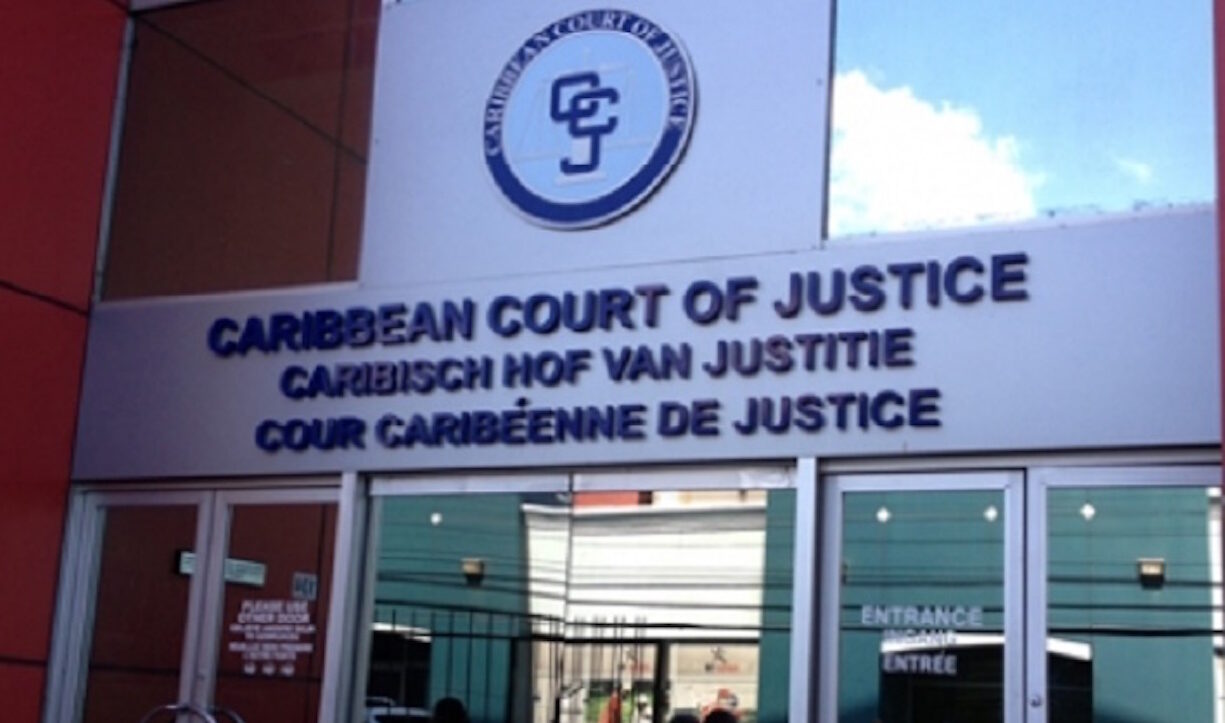Barbados’ final Court of Appeal today agreed that local popular restaurant Chefette unfairly dismissed one of its assistant managers back in January 2014, but the court substantially reduced the compensation the appeal judges granted to Orlando Harris by a whopping 67 per cent.
Instead of the $95,000 granted by the Barbados Court of Appeal back in 2016 the Caribbean Court of Justice, sitting in Trinidad and delivering its judgement in an historic live broadcast on social media, found that the Court incorrectly factored in loss of wages into the computation.
Describing the original compensation of $106,630.01 awarded by the Employment Rights Tribunal (ERT) on April 13, 2016 as strikingly large, the CCJ instead awarded the dismissed employee damages of $31,274
Chefette had been challenging the level of compensation awarded by the tribunal.
In its landmark judgment this morning, the CCJ ruled that the fast food chain Chefette Restaurants Limited will now have to pay out substantially less damages to Harris, who the court meanwhile reaffirmed had been unfairly dismissed in January 2014.
And in a further development seen by attorneys on both sides as a legal precedent which will be the benchmark for future awards of compensation in unfair dismissal cases in Barbados, the CCJ ruled out the loss of future wages as a consideration for damages in these matters.
The Trinidad-based regional appellate court had noted that the ERT factored in loss of wages for Harris in calculating his compensation.
“The decision we have reached also renders moot, a discussion of separate compensation for lost wages; there is to be no assessment of compensation for lost wages. However, even though now purely hypothetical, some observations on the limits of compensation may broaden the understanding of the conclusion we have reached as to quantum, in an area of employment law which the Court of Appeal observed was still uncharted,” the CCJ stated.
“In this case, the ERT awarded 27 months’ loss of wages, less wages earned for 9.5 months. Even if the ERT had the right to award compensation for unfulfilled expectations of benefit as if awarding compensation for loss of future wages (and we have decided it was not), the award it made would still have been erroneous,” declared the regional court.
The CCJ directed the tribunal and the local judiciary as a whole, to examine the English and Australian decisions on compensation for unfair dismissal, where they would find some basic guidelines to avoid excessive awards.
In a 60-page decision jointly delivered by Justices Winston Anderson and Denys Barrow, the CCJ however upheld the judgments of the tribunal and local Court of Appeal that Chefette had unfairly dismissed Harris.
In fact, Justice Barrow said that if the food outlet had challenged the unfair dismissal ruling of the ERT and the appeal court, it would have failed.
“The Appellant did not appeal the decision of the Court of Appeal that, having failed to comply with the statutorily prescribed due process requirements for dismissal, it was not open to an employer to resist the claim for unfair dismissal. Such an appeal would have been bound to fail and so the Appellant was well advised not to appeal that decision,” the judge said.
“However, the Appellant chose to appeal against the decision that the dismissal was unfair on the merits. It would have been better advised not to do so.
“As we have found, even if there had been great merit to the decision to dismiss, it would still have been an unfair dismissal because of the failure of the Appellant to comply with the statutory disciplinary procedures mandated by section 29 (5) of the ERA,” Justice Barrow ruled.
In addition to having to pay damages to its former employee, the CCJ has also ruled that Cheffete must foot 75 per cent of Harris’ legal bill in the Court of Appeal and the CCJ.
“We award costs on the basis that the Respondent is the overall successful party. He succeeds on his claim for unfair dismissal and for an award of compensation. We take account of the Appellant’s success and the extent of it by awarding to the Respondent 75 per cent of his costs in this Court and in the Court of Appeal,” this country’s final court of appeal found.
Harris, who was employed by Chefette from 2000, was accused of failing to follow cash handling procedures regarding a cheque for $40 that had been made out to another manager.
emmanueljoseph@barbadostoday.bb




